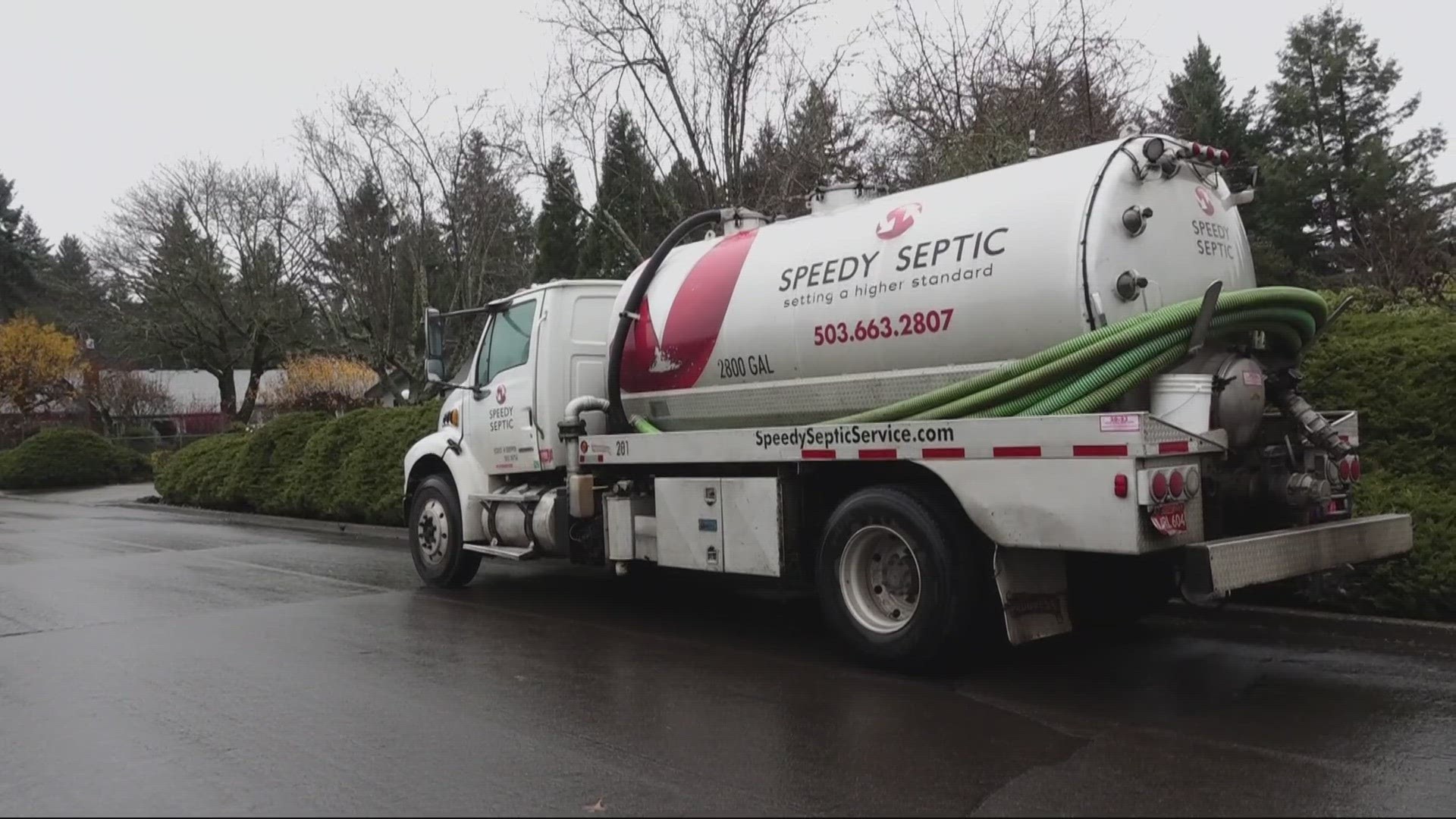PORTLAND, Oregon — Portland has seen more than 5.5 inches of rain since the beginning of the month, causing overflowing rivers, streams and septic tanks in the more rural parts of the metro.
"Yeah, our workload doubles, sometimes triples," said Ken Deneault, a septic tech with Speedy Septic.
Deneault knows a thing or two when it comes to heavy rainfall and septic systems: He has been working as a tech for nearly two decades.
"Our business really increases when the ground gets charged with water," Deneault said. "The rain is going to cause any weakness to pop up — the drain field and the leaky tanks."
In the last 72 hours, Speedy Septic said they've seen a 38% increase in their typical call volume when compared to last week and this time last year. Before the rain, they were averaging 400 calls every three days.
They've already received over 550 calls since Sunday night.
"Right now, our other drivers are pretty much maxed out, and then, we are going to have a night driver come in and he'll take the overload,” Deneault said. “So, it's definitely time where everybody gets their hours."
There are a number of things homeowners can do to prevent any issues with their septic tanks ahead of heavy rainfall — for example, installing a water-tight riser that keeps the tank lid above the water level.
It's also encouraged to stay up to date with septic maintenance to assure that the tank can keep all the rain out.
But as a good rule of thumb, Deneault said homeowners should pump their septic tank every three to four years.
"Late summer, early fall — in my experience — is when I would have my tank probably pumped because we may get rain once a year like this,” Deneault explained. “I just did my maintenance, so I know my pump is clean, my screens are clean; my floats are working. So, I could probably pull through pretty easy."

